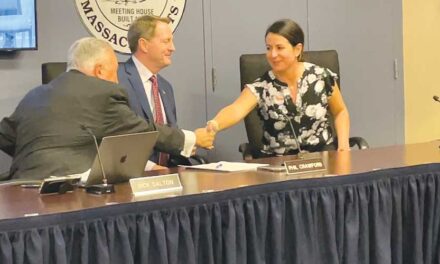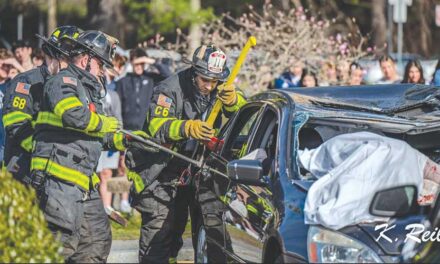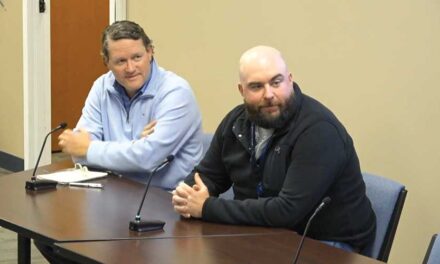Published in the October 25, 2017 edition
By DAN TOMASELLO
LYNNFIELD — It’s a brand new era for the MCAS exam, Superintendent of Schools Jane Tremblay and Teaching and Learning Director Kevin Cyr said in an interview with the Villager last week.
The state released the results of the “Next-Generation MCAS” last week. Students in grades 3-8 took the revamped tests last spring. In a letter, Department of Elementary and Secondary Education (DESE) Acting Commissioner Jeff Wulfson said the “Next-Generation MCAS is a reformatted test from the old MCAS, and the scores are not comparable to the prior tests” students across the state have taken.
Tremblay said the state changed the MCAS format and structure after receiving feedback from higher education officials and businesses.
“The tests are very, very different than what the students have taken in the past,” said Tremblay. “The reason they are different and the reason why the state changed them is because the state was figuring out that even though Massachusetts schools are among the top in the country, we were still not preparing students adequately for their college career or their work beyond high school. The state was getting that message loud and clear from higher education and companies that were hiring students. They said students didn’t have the skills that were needed.”
Tremblay said school officials were “forewarned” about the changes before MCAS 2.0’s results were released last week. She and Cyr discussed the revamped tests during a meeting with Massachusetts Association of School Superintendents (M.A.S.S.) Executive Director Tom Scott.
“Kevin and I have done two conference calls with people from DESE and superintendents, assistant superintendents and curriculum directors from across the state to talk about the changes,” Tremblay added.
The Legacy MCAS graded students’ performance by using four categories: Advanced, Proficient, Needs Improvement and Warning/Failing. The new exam will evaluate students’ performance via four new categories: Exceeding Expectations, Meeting Expectations, Partially Meeting Expectations and Not Meeting Expectations.
“The state changed the way we are assessing students and raised the bar,” said Tremblay. “The state wanted to raise the bar because our kids were basically nailing it. It’s not just our kids in Lynnfield. It’s kids across the state.”
Cyr noted only students in grades 3-8 took the Next-Generation MCAS.
“There are going to be more students in (the) Partially Meeting Expectations and Not Meeting Expectations categories,” said Cyr. “But the strong message from the state is don’t panic because that is to be expected just like when the original MCAS came out. There are a number students who didn’t score as well, but we expect the scores to go up.”
In the wake of the state launching the Next-Generation MCAS, Wulfson said students in grades 3-8 will not face any negative consequences as a result of their schools. The school system will also be “held harmless” this year.
Tremblay said parents received their individual child’s MCAS 2.0 scores on Tuesday, Oct. 24, which took place after deadline.
“When parents get the results, they are going to see that most of their kids did incredibly lower than their kids did in prior MCAS exams,” said Tremblay. “The measures that are being shared with parents and that we will be sharing with the School Committee does not mean our kids are learning less and our teachers are not doing a good job. It does not mean that we are not an excellent school system. What it means is the bar has been raised significantly. We have got a challenge in front of us, but it’s a good challenge. It’s a challenge for our teachers and it’s a challenge for our students.”
While students in grades 3-8 took the Next-Generation MCAS, Cyr said high school sophomores took the old MCAS English and math exams and freshmen took the old MCAS science exam.
“The tenth grade will take the Next Generation MCAS in the spring of 2019,” said Cyr. “They are not affected by these changes.”
Tremblay agreed.
“The reason why the state is keeping the high school the same is high school students have played by one set of rules and they need this for a high school graduation requirement,” said Tremblay. “If the state changed the rules for high school students now, it would not be fair to anybody. They have played by one set of rules for the past 10 years and they are not changing that.”
Additionally, fifth and eighth graders at Lynnfield Middle School took the Legacy MCAS science exam.
In regards to the Next-Generation MCAS, Tremblay said, “50 percent of the kids in Massachusetts are below the mark.”
“We were told that ahead of time,” Tremblay continued. “Kevin and I have gone through all of our students’ results. We clearly have work to do with the new test, but the good news is Lynnfield is above the state average.”
Tremblay said the Next-Generation MCAS results will serve as the school system’s “new baseline” going forward.
“It’s like when MCAS came out in 1998,” said Tremblay. “Our results mirror what happened in 1998. We have a new baseline and we are moving forward.”
Tremblay said school officials and curriculum directors will still be developing MCAS action plans just like previous years.
“We are not hitting the panic button,” said Tremblay. “We are going to do what we always do. We are going to teach, we are going to reflect, we are going to assess and we are going to readjust. We are not changing that formula because that formula has worked out very well for us.”
Tremblay said school officials will not be abandoning recently launched social-emotional learning (SEL) initiatives for the sake of preparing students for the Next-Generation MCAS. She said school officials have discussed that with both DESE officials and superintendents from across the state.
“They all support the fact that the academic work should not replace the SEL work,” said Tremblay. “If anything, the SEL work that we are doing is going to help us reach the bar the state has now set for us with MCAS.”
Tremblay said the school system will continue administering its own assessments and will continue holding assessment meetings every six weeks.
“One of the reasons why we put the assessment meetings into play is we didn’t want to put all of our eggs into the MCAS basket,” said Tremblay. “We wanted other measures to determine whether our kids were being successful or not. We will still be heavily relying on that data every six weeks to steer us in the right direction to support the kids who are not meeting the mark every day in our classrooms.”
While the school system will continue utilizing assessment meetings to monitor student achievement, Tremblay said school officials will not be putting students into intervention programs based on data from the Next-Generation MCAS.
“The administrators in this district are not worried about this,” said Tremblay. “It’s one more challenge and one more way to raise the bar in own district to keep our checks and balances that we are doing right by kids. We are not worried about this and we are not nervous about this. We got this.
“We just need the community to understand there are changes and it’s a brand new test, so there can’t be any comparisons,” Tremblay continued. “Change is good. And this is no reflection of the quality teachers we have in this district. If anything, I think it’s going to highlight the excellent quality of our teachers.”




